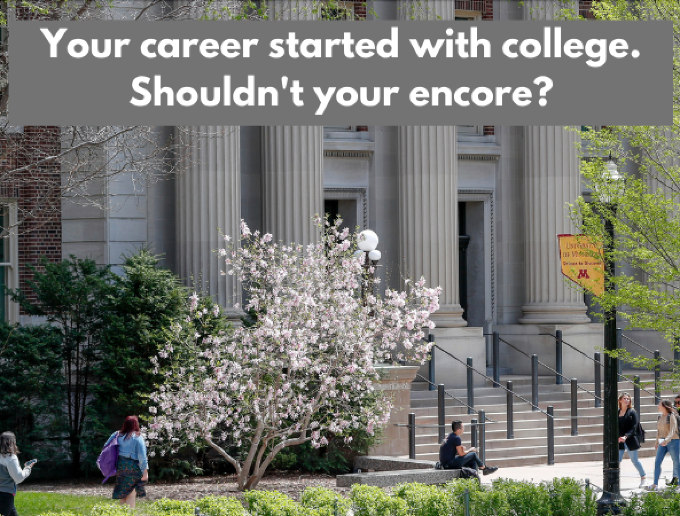February 14, 2025
Older adults represent largely untapped pools of talent that can be marshaled to respond to the social, economic, and environmental shocks characterizing life in the 21st century.

"Universities are among the most age-segregated of institutions, catering almost exclusively to young people in their late teens and early 20s, even as new demographic realities render this educational model obsolete.
"Universities are among the most age-segregated of institutions, catering almost exclusively to young people in their late teens and early 20s, even as new demographic realities render this educational model obsolete.
"With unprecedented numbers of adults living longer, many want or need to learn and earn longer too. A new life stage—an encore to conventional adulthood—is opening up between the career- and family-building years, and the frailties associated with old age. Most people in their 50s, 60s, and 70s are healthy, energetic, and often surprised to be pushed into retirement or laid off with few job prospects. While some want to move into full-time leisure, the vast majority seek new pursuits, whether paid or unpaid, that offer meaning and purpose. But they find few roadmaps and few options for long-life learning at universities.
"This reality represents a lost opportunity for all parties—older adults and younger ones, universities and society at large." - Phyllis Moen & Kate Schaefers
ARTICLE: Long-Life Learning and the Age-Integration of Higher Education
No items found.
